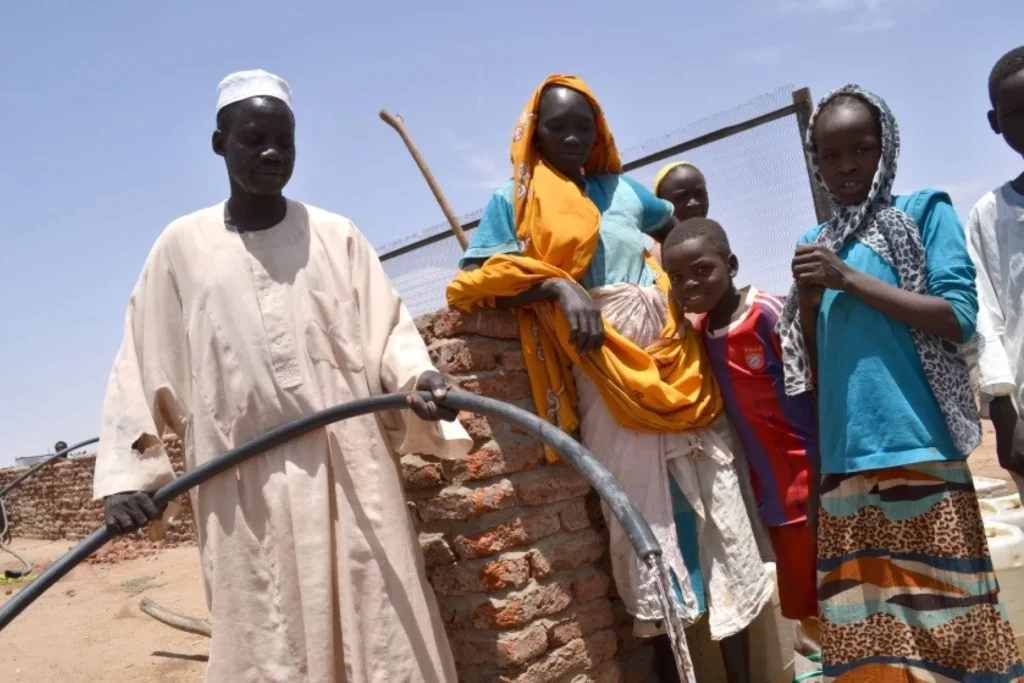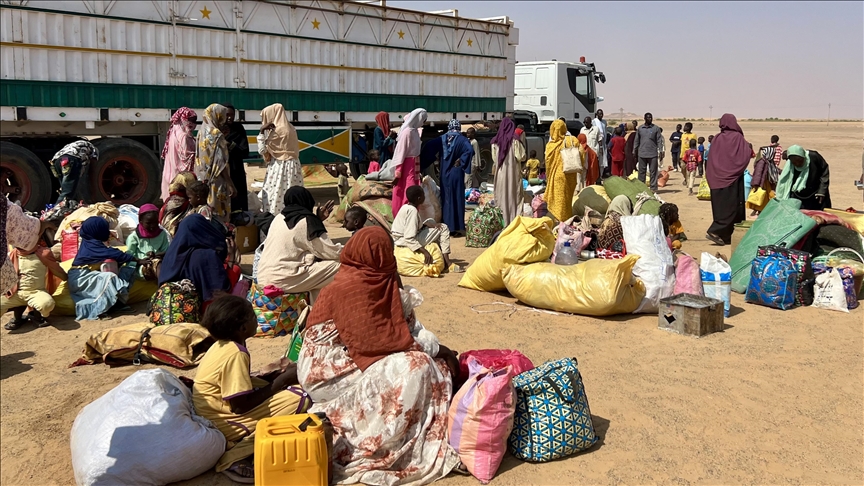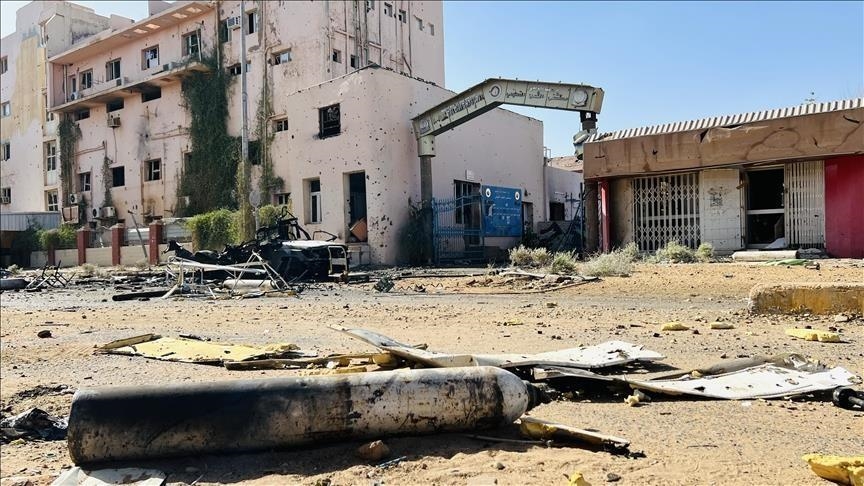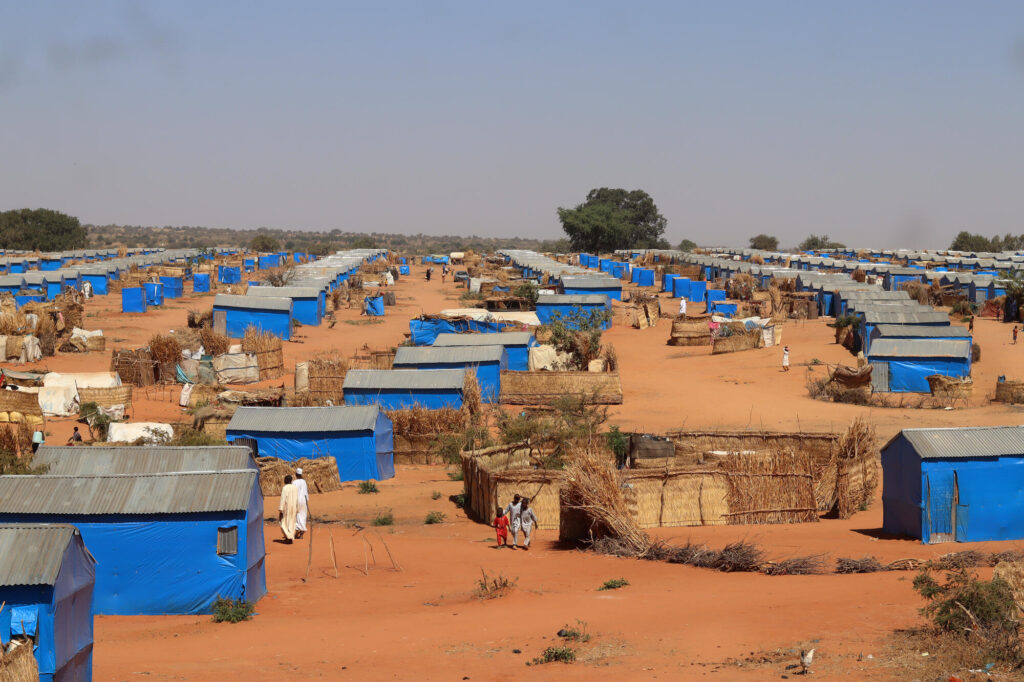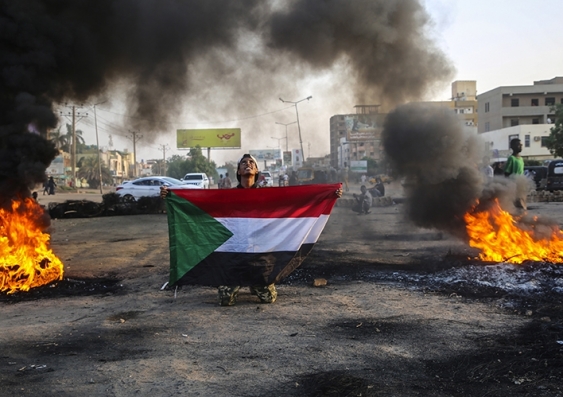
Sudanese analysts have predicted that the internal conflicts within the dissolved National Congress Party (NCP) could play a key role in ending the ongoing war in Sudan between General al-Burhan’s army (SAF) and the Rapid Support Forces (RSF), given their significant impact on the course of the conflict.
The NCP was the ruling party during Sudanese dictator Omar al-Bashir’s rule.
Increasing disputes within the party have suggested the possibility of near-future splits among members, many of whom are accused of fueling the war that has pushed Sudan to the brink of division.
The internal disputes intensified following the appointment of Ahmed Haroun, who is wanted by the International Criminal Court, as head of the NCP, with support from Ali Karti, who is also accused of playing a central role in instigating the ongoing war.
Haroun’s appointment was met with fierce opposition from another faction led by Ibrahim Mahmoud Hamid, which declared it would not recognize Haroun’s leadership, describing the move as a coup against the party and its institutions.
A Divided Party
Recent efforts to mediate between the two factions have failed, bringing the party close to a complete split. Ibrahim Mahmoud’s faction conditioned its response to any settlement on the cancellation of the decisions made during a November 2023 meeting of the Shura Council in Atbara, which led to Haroun’s election as party leader.
The group also insisted that Mahmoud remain the leader until a properly convened Shura meeting could take place. A statement accused Karti and Haroun’s faction of escalating the conflict by supporting one side with money and resources.
The statement also revealed that upon Haroun’s release from prison at the start of the war, he traveled to the eastern Sudan city of Kassala, where he met with Ibrahim Mahmoud and informed him that he had come on behalf of the Islamic Movement to rally fighters to join the SAF.
It also stated that dictator Omar al-Bashir supported Haroun’s position, declaring him the legitimate head of the party, and ordered party leaders, including the deputy chair of the Shura, to back him, warning that if they didn’t, he would soon be released from prison and take actions to reinstate Haroun as party leader.
The statement also noted that the security arrangements for the contentious Shura meeting were handled by an unauthorized body, with the SAF ultimately securing the event in Atbara.
Renewed Divisions
Political analyst Salah Hassan Jumaa sees the ongoing conflict within the NCP as a “revival of old disputes,” with one faction still holding on to power to protect its economic interests. Jumaa explained that this faction has embedded itself in state institutions, particularly the military, and opposed any efforts to transfer power to the Sudanese people.
He pointed out that the group led by Karti, Ali Osman, and their current ally Haroun has always been at the center of the party’s internal conflicts.
Furthermore, Jumaa noted that the rifts within the NCP extend even to their jihadist battalions fighting alongside the SAF against the RSF.
A Positive Outcome for the People
Political analyst Omar Mohammed al-Nour believes the ongoing internal conflict within the NCP could result in benefits for the Sudanese people, as it might help bring an end to the war fueled by the rival factions and external actors like the Muslim Brotherhood.
Al-Nour suggested that the growing disagreements within the dissolved party would deal a blow to those who support the continuation of the war, as the divisions would negatively affect the morale of the fighters, potentially leading them to stop fighting and end the conflict.
He also pointed out that these disputes lend credence to accusations made by RSF leader Mohamed Hamdan Dagalo, who has blamed Karti’s group for prolonging the war in their pursuit of power and economic interests.
SAF and jihadist alliance teetering on the brink
The escalating tensions between General al-Burhan’s (SAF) and the Muslim Brotherhood have also raised alarms and symbolize a deeper and broader division between Sudan’s military establishment and the jihadist factions.
Key Islamist leaders, such as Hartoun and Karti have increasingly positioned themselves against the military’s direction, intensifying the political and military fragmentation.
This dispute has been fueled by widespread regional and international opposition to the Muslim Brotherhood’s return to Sudan’s political scene, which has diminished the SAF’s support from external actors.
Analyst’s characterize the fallout as the end of a “marriage of convenience” between the military and Islamists.
Remarks made by Abdul-Hay Youssef, a fugitive cleric accused of radicalism, has been the latest catalyst to add to the divide.
Radical cleric launched a scathing attack on SAF chief Abdel Fattah al-Burhan last week, labeling him an “irreligious traitor” and claimed jihadists, not the SAF, deserve credit for the few battlefield victories SAF was able to achieve.
Youssef’s remarks have sparked widespread debate and raised questions about the true power dynamics within the Sudanese military.
Youssef also insinuated the presence of Islamists within Al-Burhan’s inner circle runs so deep that they are even embedded within his office.
This suggests that the Islamist Movement and its allies, including the Muslim Brotherhood, have achieved a level of infiltration that has allowed them to influence and potentially control key decisions within the SAF.
The escalating tensions between Al-Burhan and Sudan’s Islamist factions signal a potential fracture within the Sudanese Armed Forces (SAF), already mired in a brutal conflict with the Rapid Support Forces (RSF).
This ongoing war has caused tens of thousands of deaths and displaced over 11 million people, with the United Nations estimating that 26 million Sudanese face severe food shortages
As the conflict deepens, the possibility of internal divisions within the SAF leading to a larger collapse of authority looms. Islamist forces, who once supported Al-Burhan, could seize control of critical military and political institutions.
Al-Burhan’s weakening grip on power suggests that his former Islamist allies and NCP may soon turn into his most formidable opponents.
2 Of Sudan’s Most Wanted, Haroun and Karti
Ahmed Haroun and Ali Karti, two of Sudan’s most notorious political figures, played central roles under the regime of former dictator Omar al-Bashir, facing accusations of human rights violations and war crimes during their tenure in power.
Ahmed Haroun: A former Sudanese government minister and a key member of the National Congress Party (NCP), Haroun held influential positions as Minister of State for the Interior and later as Minister of Humanitarian Affairs. However, he is most infamous for his involvement in the Darfur conflict, where he was accused of overseeing atrocities that led to the deaths of thousands of civilians.
The International Criminal Court (ICC) issued arrest warrants for Haroun, charging him with war crimes and crimes against humanity for his role in the violence that gripped Darfur. Despite the charges, Haroun remained a significant figure in Sudan’s political and military elite, continuing to exert influence within the circles of power long after his association with the al-Bashir regime.
Ali Karti: A Sudanese politician and diplomat, Karti served as the Minister of Foreign Affairs under Bashir. As a loyal member of the NCP, Karti played a pivotal role in managing Sudan’s foreign relations during a period of intense international scrutiny. He was particularly instrumental in navigating the country’s diplomatic ties amidst the sanctions and isolation that followed the Darfur conflict and Sudan’s increasing international condemnation.
Karti’s diplomatic efforts spanned key regional issues, including the conflict in South Sudan and Sudan’s often tense relations with Western nations. Despite his diplomatic role, Karti remained a staunch ally of Bashir, and like Haroun, he was deeply enmeshed in the authoritarian politics that dominated Sudan for decades.
Both Haroun and Karti, despite facing allegations of gross human rights violations, managed to retain their positions of power within Sudan’s ruling elite until the country’s revolution in 2019, which saw the ousting of Omar al-Bashir. Their legacies are marred by their involvement in the brutal repression of Sudanese civilians and their support for a regime that led the country into decades of conflict and international isolation.

